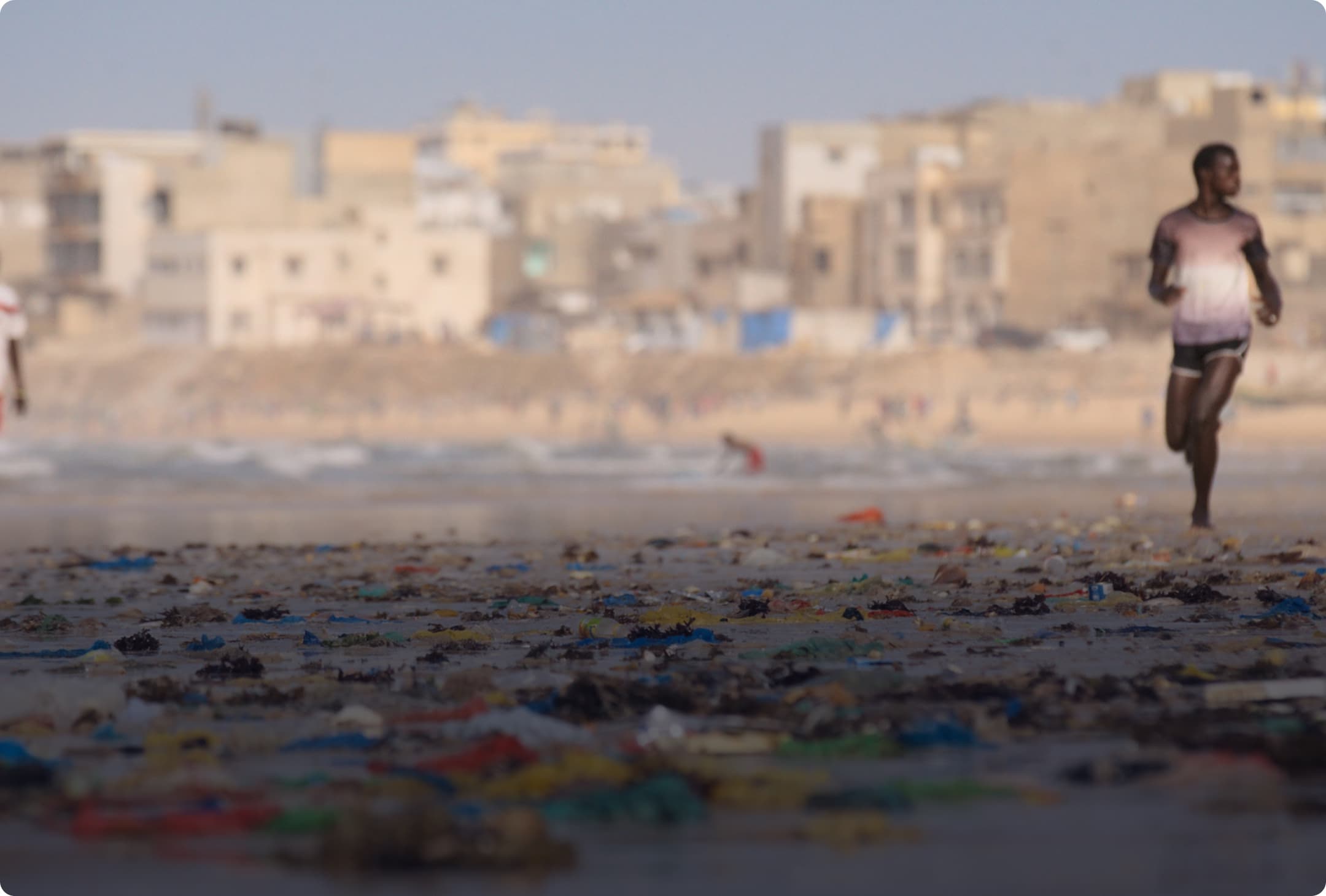
The Human Side of Plastic: Babacar's Story
Meet the community that’s working to protect Senegal’s coastline and fisheries
Babacar Thiaw, a surfer and restaurateur in Dakar, turned his love for the ocean into a force for environmental change. What began as a personal wake-up call on polluted waves grew into a national movement—one that shows how local action can spark global impact.
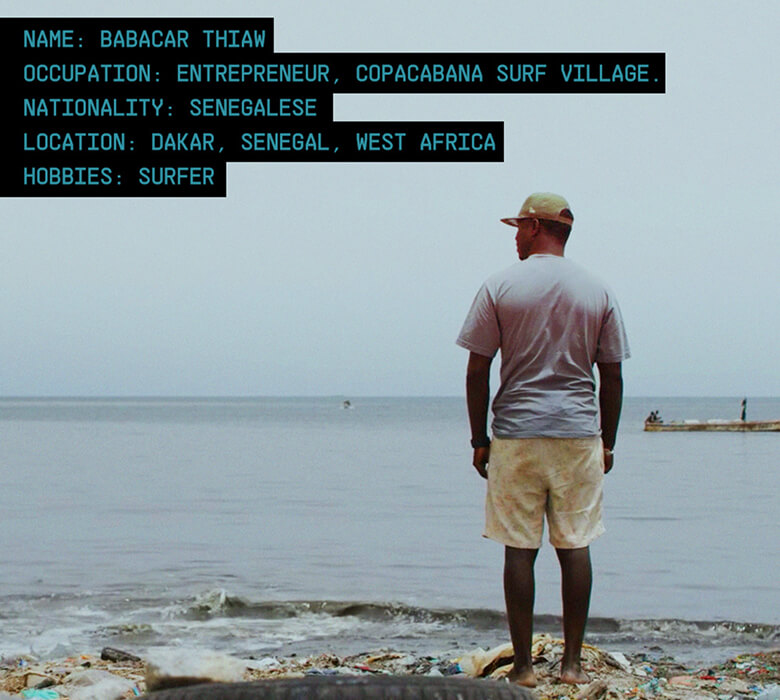
“I love this place. But am I condemned to living like this for the rest of my life? But what kind of legacy are we leaving?”Babacar Thiawsurf club owner & environmental advocate
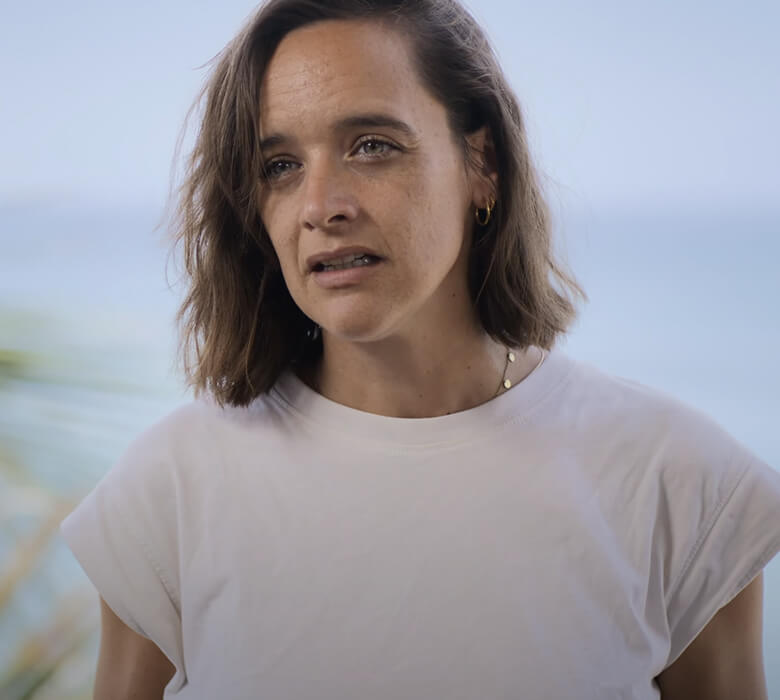
“Consumption patterns are changing, leading to an increase in single-use plastics. According to the World Bank, over the next 30 years, waste production is set to triple in sub-Saharan Africa.”Claire StragierCo-founder of surfrider senegal
The livelihood of coastal communities in Senegal is at stake
Plastic pollution isn’t just an environmental crisis—it’s an economic and social one too. In Dakar, both local livelihoods and cultural traditions are threatened by debris choking the shoreline. Babacar’s mission shows that protecting the ocean means protecting the people who depend on it.
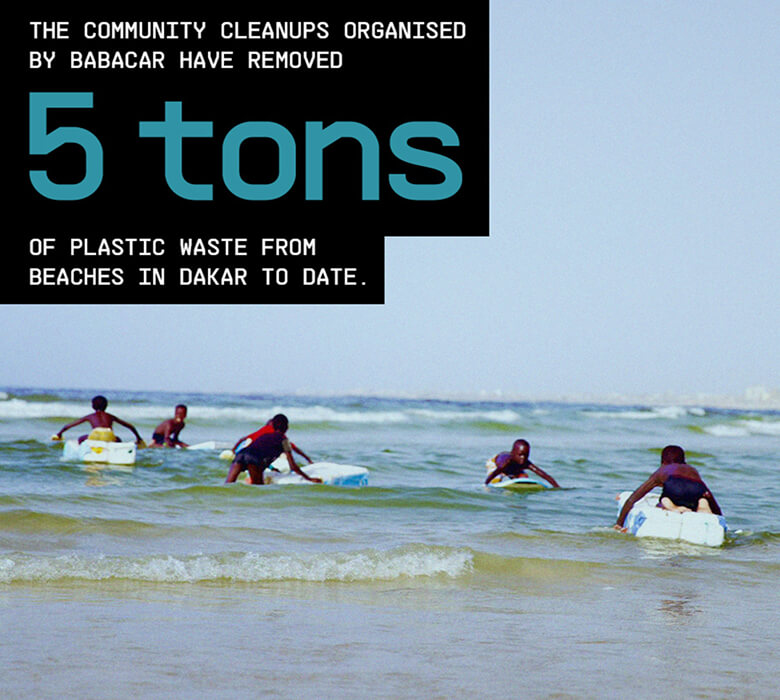
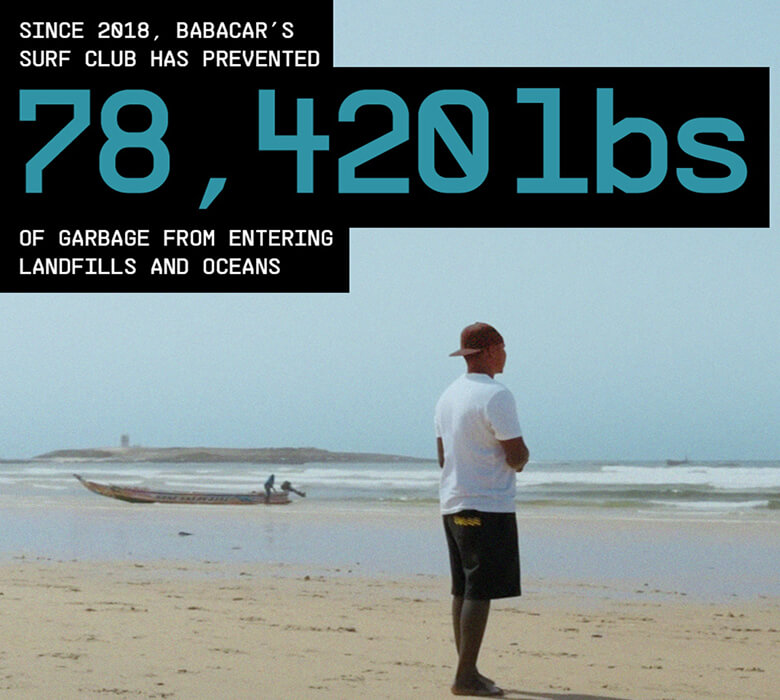
“In 2019, I was the only zero-waste restaurant in Senegal. And right now, in June 2024, we have 68 restaurants that are zero-waste.”Babacar Thiawsurf club owner & environmental advocate
Affecting generations to come
Babacar’s work reminds us that safeguarding the coastline isn’t just for today—it’s for tomorrow’s children too. Through sustainable practices and community stewardship, his initiative ensures the next generation inherits a cleaner, healthier ocean.
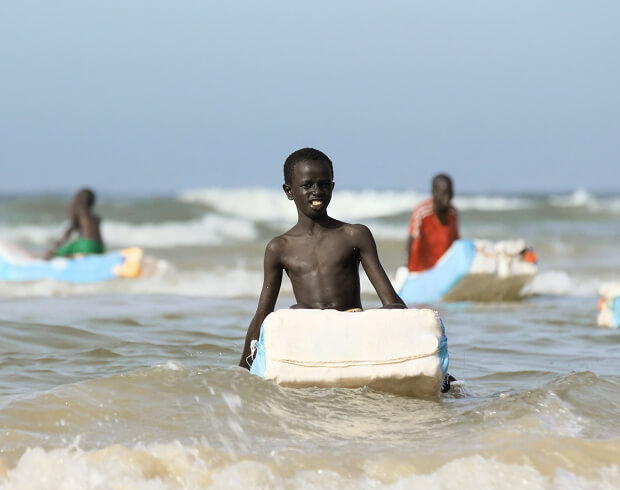
“Nowadays young people are more committed than we were in our time. Now it’s their responsibility to change the world.”Bababcar Thiaw, Snrsurf club owner & environmental advocate
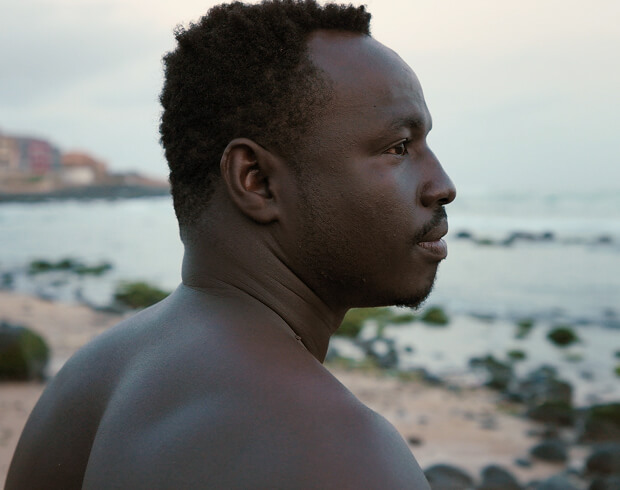
The fight for our seas starts here
From banning plastic straws at a surf club to launching beach clean-ups, water testing, and a national zero-waste restaurant movement, Babacar’s story proves that grassroots action drives real change.

